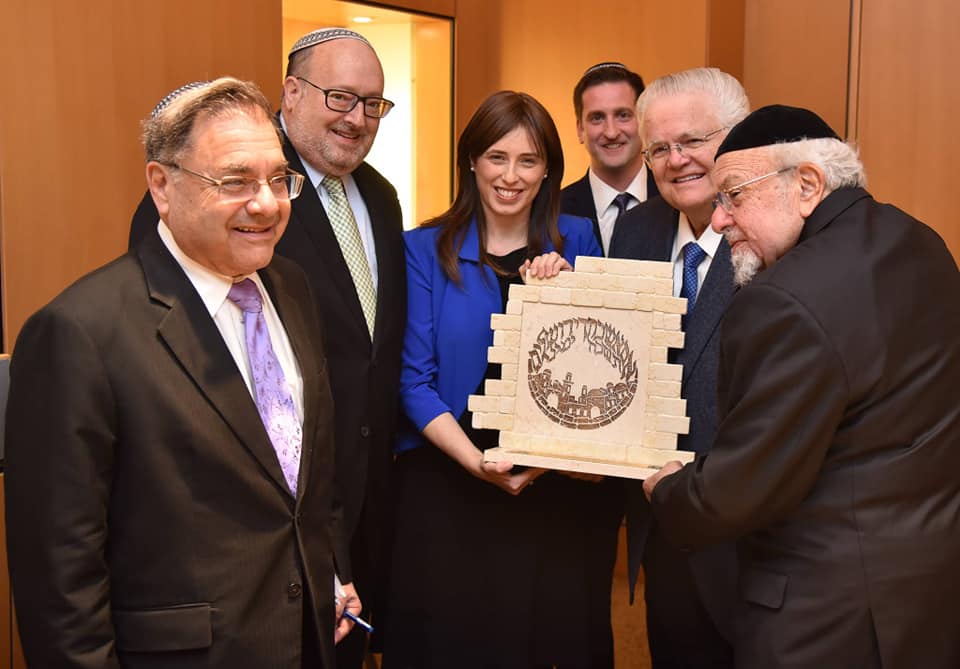Is Christian Zionism a “heresy?” Some think so, including a publicized young staffer at the Heritage Foundation, who said:
Gen Z has an increasingly unfavorable view of Israel, and it’s not because millions of Americans are antisemitic. It’s because we are Catholic and Orthodox and believe that Christian Zionism is a modern heresy.”
Christian Zionism and pro-Israel views are less popular among young Christians of all stripes than among the old.
One reason is the declining popularity of Dispensationalism, the 19th century theological system best known today for stressing The Rapture and End Times, and which also stresses the Jews’ return to Israel as preamble to Christ’s return. Dispensationalism became ascendant among evangelicals, especially Baptists and Pentecostals in the 20th century. Christians United for Israel, founded by Dispensationalist pastor Jack Hagee, became America’s largest Christian Zionist group in the late 20th century.
Younger Evangelicals are less inclined to systematic Dispensationalism, and seminaries that once stressed it no longer do. Personally, I rarely if ever meet Dispensationalists under age 50. Many Evangelicals who are not strictly Dispensationalist still adhere to some aspects of it, believing, for example, that God’s blessing of Abraham and his descendants is a permanent promise. But even that teaching is rarer among younger evangelicals, some of whom are indifferent if not hostile to Israel. Many Americans, perhaps even most, conflate Christian Zionism with Dispensationalism, and with it, Boomer era evangelicalism.
The young staffer at Heritage Foundation, who was presumably Catholic, presumably made this conflation and decided Christian Zionism is heresy since Dispensationalism does not conform to Catholic teaching. Christian Zionism of course precedes and is much wider than Dispensationalism. Across 2,000 years many Christians have believed that there is an intrinsic ongoing tie between Jews and Israel. Dispensationalism gained ascendance thanks partly to the 20th century’s dramatic events that made Zionism attainable. The Ottoman Empire fell, Britain seized Palestine after adopting the Balfour Declaration supporting a Jewish homeland. The Holocaust added urgency to Zionism. And Britain’s departure from Palestine facilitated modern Israel’s founding. What had seemed impossible was then enacted, a prophecy fulfilled, validating Dispensationalism, and beginning the clock for Christ’s return.
Much of Dispensationalism taught that the generation that saw Israel restored would live to see Christ’s return. It’s now nearly 80 years, and few evangelicals are discussing this calendar. In the 1970s and 1980s it was far different, with books like The Late Great Planet Earth. And Pat Robertson on his popular 700 Club routinely connected unfolding world events, especially in the Middle East, to Dispensationalism’s End Times calendar. The Left Behind genre popularized Dispensationalism’s Rapture motif but perhaps also undermined its seriousness, making it more like science fiction entertainment than sober spirituality.
Largely forgotten are the 20th century liberal Mainline Protestant and black Protestants who were Christian Zionists, such as Reinhold Niebuhr and Martin Luther King, Jr. They were nowhere near Dispensationalism, nor were they interested in fulfilled prophecies. Instead, they saw a suffering people, nearly exterminated, who deserved a homeland. For them it was a matter of biblical justice. And for Niebuhr at least, it was a a question of “Christian Realism,” in that the Jews, as the target of centuries of irrational prejudice, could not be safe without a homeland.
Niebuhrian Christian Realism is higher brow and not as high octane as Dispensationalism, and few Christians know much about it. Instead, with the conflation of Christian Zionism with Dispensationalism, pro-Israel Christians are left with a declining demographic as Dispensationalism recedes. And what’s left of Dispensationalism, in its conflation with all Christian Zionism, is derided by some as “heresy.” Strong support for Israel, with this logic, begins to equal heretical and perhaps even anti-Christian. This insinuation fuels other insinuations that supporters of Israel are putting another country before America. And it can fuel antisemitism, by implying that Jews, in their support for Israel, are not loyal to America.
So Christian supporters of Israel are going to have to improve their main talking points, and their underlying theology, if they’re to be effective in a new era. Christians in a free society should not be shy about citing their faith in their advocacy. But neither should they rely on esoteric theological perspectives that are culture-bound and open to charges of “heresy.”
Also important to remember is Christianity’s long history of antisemitism, which bears some responsibility for the imperative of a Jewish homeland. Christians disagree and always will about eschatology and the forensics of salvation. But Christians must agree about the Gospel command to love all people, Christian or not, to advocate for justice for all people, and to prioritize the vulnerable. Antisemitism is the world’s oldest hatred that Christians should be on special guard against.
Opponents of Israel like to argue that critique of Israeli policies does not equal antisemitism, which obviously is true. But chronic obsession with critiquing Israel almost always signals antisemitism. Some American Christians, in the post Dispensationalist age, are now tempted by or falling actively into dark well of obsession with Israel and by extension Jews.
This dark obsession, even in milder forms, is irrational and contravenes all that Christianity teaches. Christian Zionism, broadly, is no heresy, but a search for justice and security for a besieged people. And in all its forms it understands that the God of Christians loves and cares about Jewish people.
No comments yet
Your email address will not be published.
Related Reads
1
2
3
4
The work of IRD is made possible by your generous contributions.
Receive expert analysis in your inbox.
Institute on Religion and Democracy
1023 15th Street NW, Suite 200
Washington, DC 20005
Contact us | Media requests
© 2025 The Institute on Religion and Democracy. All rights reserved.
Dear Reader,
Will you stand with IRD and faithfully support the church coverage you rely on today with a special gift of $100, $250, $500 or whatever you are called to give?
Make your tax-deductible gift today!
